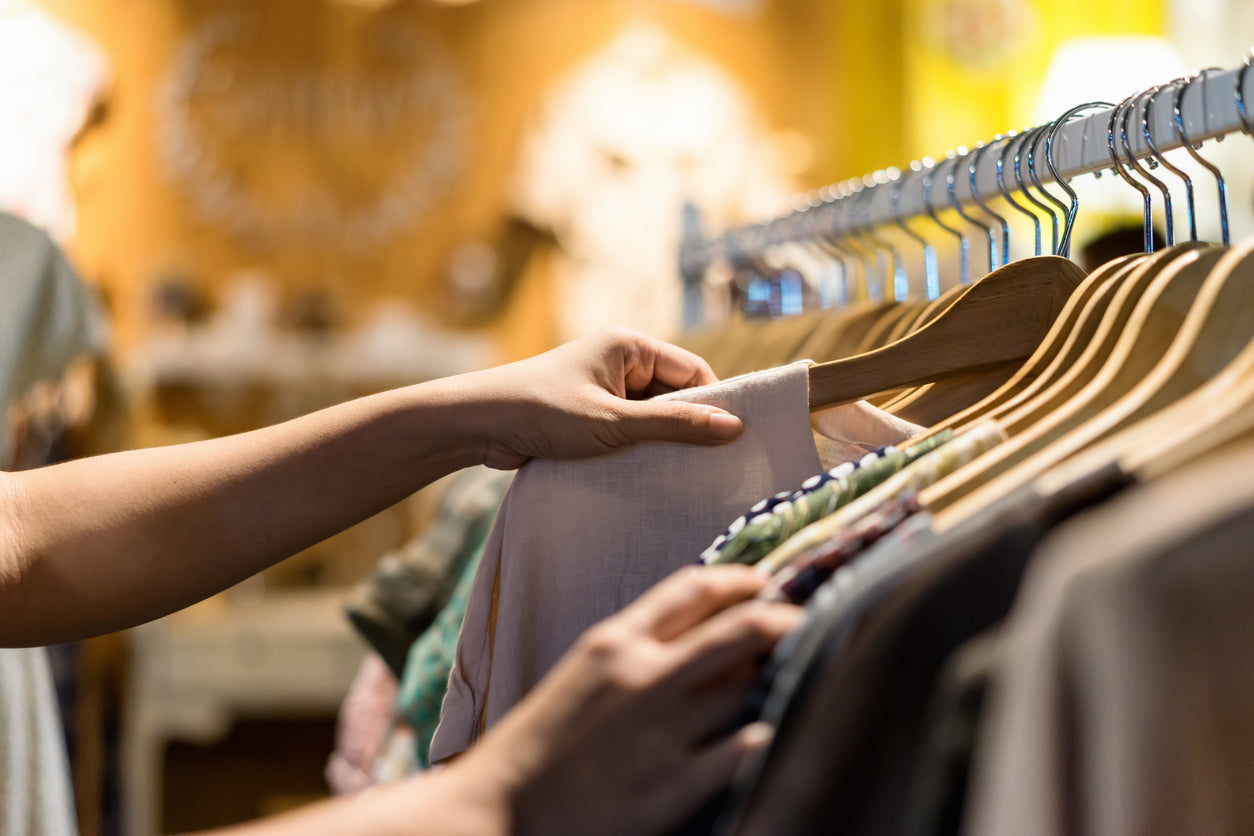Should Buy Well, Buy Once Be Your New Year Sustainability Pledge?
Fast fashion is driven by our desire for ever cheaper clothing, allowing us to wear what's 'in' without having to spend a lot. Cheap fashion means we can afford to update our look more often as the fashion industry has evolved towards a perpetual fashion cycle as opposed to the traditional seasonal fashion cycle.
With so much available, so cheaply, should we be making more of an effort to curb our purchasing?

I don't know about you, but even for those of us that don't jump on every latest trends, there are certain trends that I'll spot and love and regardless of how much I like to regard myself as an individual with no specific fashion tribe, I am still regularly seduced.
Take a couple of years ago, I was positively gleeful when tie dye re-emerged as a trend and I jumped straight on it. More recently the trend for 'ugly' over-sized knitwear and garish cardigans. Again, straight on that one! Oh and there was the chunky 90's trainer revival thing too, and yup, loved it and bought into it. I could probably go on, but you get the picture.
With Instagram constantly full of new brands advertising clothes tightly targeted to our own style, it's hard not to buy in, and even if you steadfastly refuse to jump on the latest fashion trends and are only occasionally swayed into buying something you want rather than need - most of us are probably guilty of buying more clothing that we really need and over consuming.
Sustainable denim brand Lucy & Yak recently reported that a massive 27% of people judge others who wear the same outfit more than once whilst 12% admit to buying outfits they know they'll only wear once.
It's no wonder then that fast fashion is booming and helping to fuel a throaway culture that finds it acceptable to buy things that will get very little use before being dumped.
With this in mind, could 2022 be your year to pledge to do things differently? The buy well, buy once movement is founded on the principle that it's worth spending a little more up front to buy clothing that has been sustainably produced and/or is of higher quality than your typical fast fashion, means it's less likely to lose its shape, colour or unravel on you, meaning you'll be able to wear it time and time again for many years to come.

Whilst this is a great ethos, it can mean spending more and whilst some may argue not everyone can afford to spend, lets say £60 on a pair of denim jeans, if that pair of jeans lasts you for the next 5 years and you wear them multiple times each month, then the cost per wear will be tiny and you could find that compared to a chepaer product that might fail more quckly and legitimately need replacing, that it makes much better financial sense.
Before you assume buying well is going to be too expensive, consider how many items of any particular type of clothing you'd typically buy in a year and look at how much they all add up to. You might be able to buy 2 or even more of something of far greater quality intended to be worn for a longer period of time, for the same amount of money.
When you're spending more money on a piece of clothing, whether that's a basic t-shirt or jeans, or a new pair of boots or a coat, if you spend more, you're more likely to put far more thought and time into the purchasing decision, which could mean you end up with something you truly love and get pleasure from wearing.
So this year, spare a thought to the planet and consider whether you can do your own little bit by making more considered purchases and fewer of them.
When it comes to maintaining the life of your tops Original Holé Button Covers will help to stop tiny holes from appearing, keeping them looking newer for longer.

